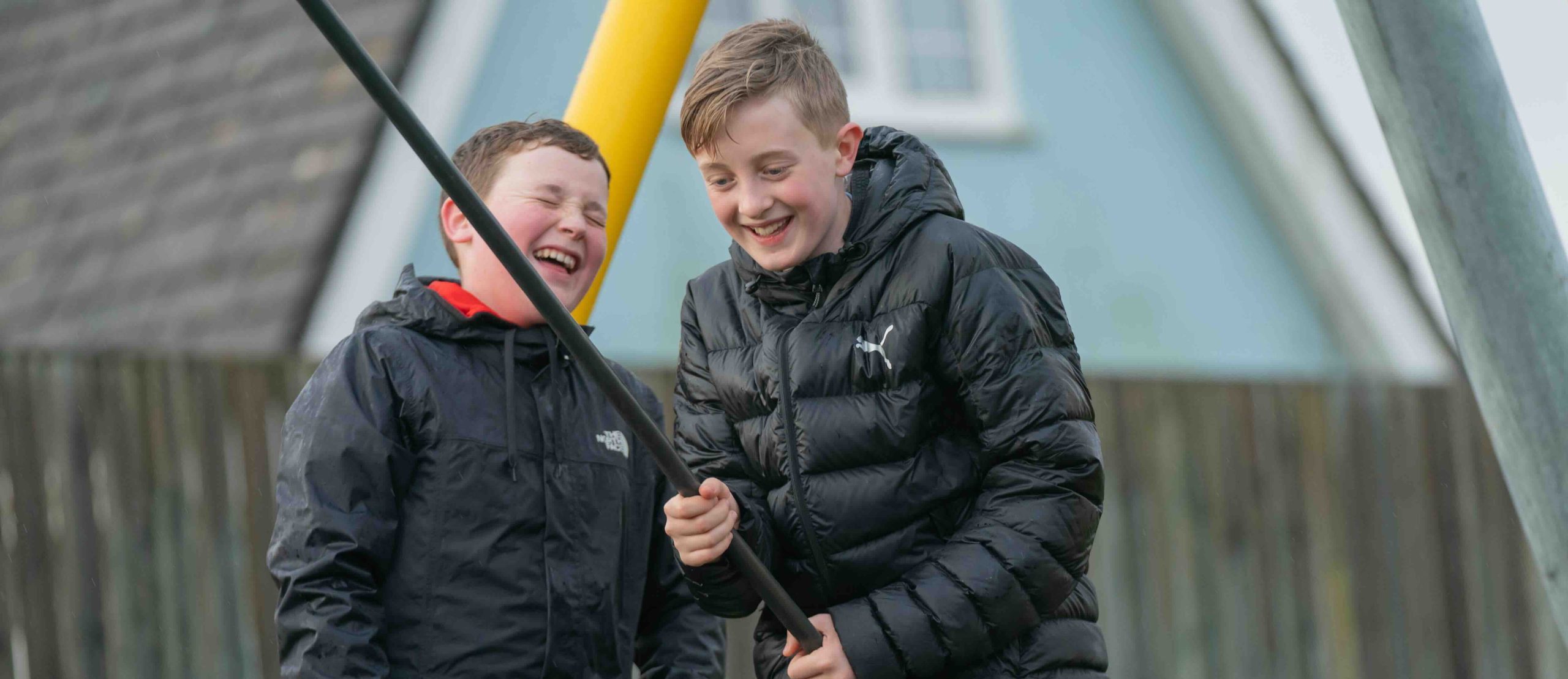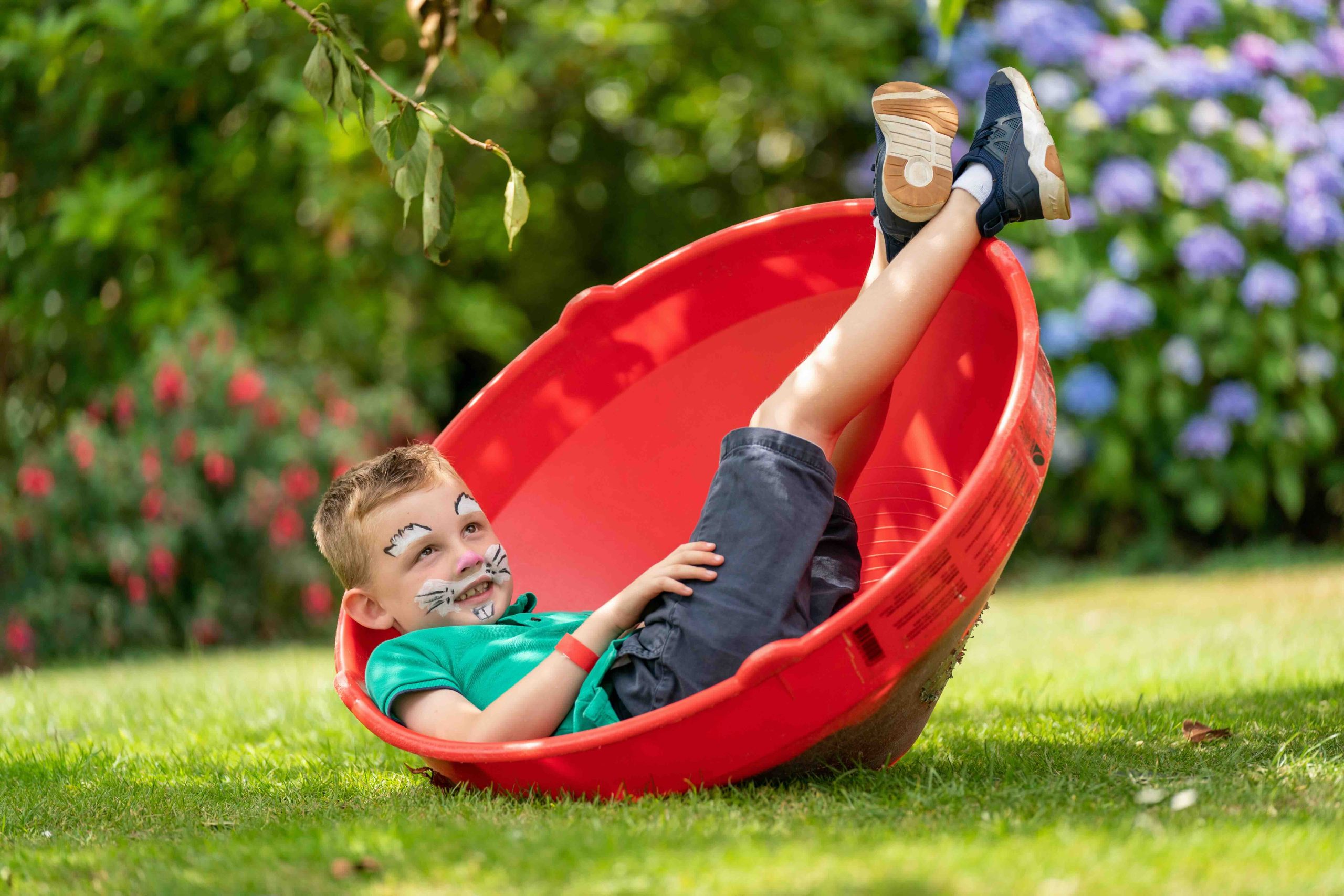All about play
Top tips to support your teenager’s play
Playing isn’t only for younger children - teenagers play too. But your teenager may call it something else, such as hanging out. Playing, relaxing, and socialising all contribute to your teenager feeling well, happy, and able to cope with life’s ups and downs
A time of change
Adolescence is a time of physical, social and emotional change. Neuroscience shows that teenage brains are undergoing a dramatic period of change and are different from children’s and adults’ brains.
Different areas of the brain develop at different rates. The areas related to social and emotional development mature faster than the areas responsible for planning, organising, and controlling impulses. So, at a time when your teenager’s brain is seeking risk, challenge and sensation, the area of the brain that helps to keep it under control hasn’t caught up yet!
Relationships matter
Teenagers want more freedom and independence, so your relationship with them will be changing. But it does still matter to them.
Risk and challenge
It’s normal for teenagers to look for some risk and challenge, whether in physical activities or social experiences. They will naturally test their own limits – and probably yours too. As parents, we want to keep them safe but it’s also important to allow them to grow into capable, independent young people.
Talk about risk-taking
Keep the lines of communication open between you and your teenager. Discuss the kinds of activities and experiences that might come their way, for example:
- meeting new people
- going to other people’s houses for parties
- sitting around fires
- staying out after dark
- getting into a car with someone who’s just learned to drive
- smoking.
A simple way to talk about these kinds of teenage activities is to make a list together and put the activities into red (very risky), amber (possibly risky) and green (not risky) categories depending on the level of potential risk involved.
Think it through
Help your child or teenager to think about situations that might lead to mistakes, such as hanging out and socialising somewhere dangerous. Practice with them ways to say ‘no’, and think of ideas to get out of situations where they don’t feel comfortable.
Get-out clause
Some families have a ‘code word’ (or phrase) that their teenager can use in a text or phone call if they want their parents to come and get them. This gives them a way of resolving a situation without embarrassment.
Making mistakes
Everyone makes mistakes. The important thing is to learn from them and find ways to avoid repeating them. Ask your teenager questions like:
- ‘What happened?’ rather than ‘What did you do?’
- ‘How did it happen?’ rather than ‘Whose fault was it?’
- ‘What are the consequences?’ rather than ‘What are you going to do about it?’
This will help them reflect on what happened without feeling blamed.
Limits and boundaries
Even if they say they don’t need them, teenagers still benefit from knowing the rules and boundaries. Involve them in setting limits and be willing to negotiate.
Encourage positive risk-taking
Encourage your teenager to try activities that have an element of risk and challenge if they are offered the chance at school or clubs. Things like mountain biking, sailing, outdoor challenges, and camping will give your teenager a positive sense of challenge and risk taking.
Wellbeing
A positive sense of wellbeing helps your teenager handle everyday life. A teenager with a sense of wellbeing will learn how to deal with the setbacks and disappointments that everyone has at some point in their life. Some of the ways teenagers develop a sense of wellbeing include:
- Having fun
- Being part of a group
- Taking regular exercise
- Finding things they’re good at.
Sleep matters
Teenagers’ sleep patterns tend to be disrupted but they do need plenty of sleep – about nine hours a night. Some things that help them sleep well include:
- Spending time outdoors
- Getting exercise
- Having calming night-time routines
- Switching off the Wi-Fi
- Turning off and putting away electronic devices.













